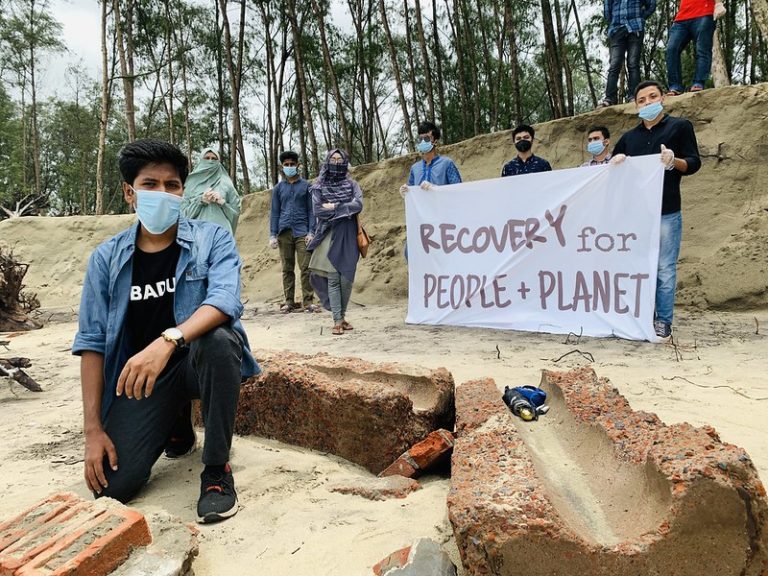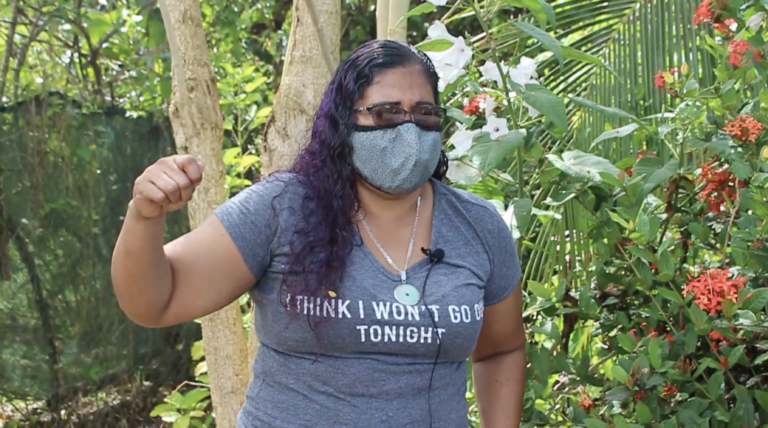
2020 was the hottest year on record – topping the last seven years which were among the warmest ever recorded in the past century.
2020 will also go down among the most disruptive years in tis century as we continue to grapple with the COVID19 pandemic that has upended the world and brought into sharp focus the limitations of our social, economic and political systems.
With more than 2.5 million deaths globally by the end of February 2021, and hundreds of millions of people suffering the fallout of this pandemic from unemployment to food insecurity and lack of access to healthcare and education, it is clear that we are in a confluence of multiple crises that warrants a transformational approach to change and not a mere reset back to ‘normal’.

Global solidarity for a #PeoplesVaccine
Even as vaccines have become available by the end of December 2020, as of the end of February 2021 only 10 countries have administered 80% of COVID19 vaccines, with more than 130 countries not receiving a single dose.
Drawing parallels with the climate crisis, it is clear that we need renewed efforts in global solidarity and justice to end this pandemic. Vaccine nationalism and vaccine imperialism undermines the safety of all citizens in all countries while only protecting a few. Like the climate crisis, a virus does not stop at national borders and it is critical that we push for vaccine accessibility for the most vulnerable people in all parts of the world.

Principles of engagement in digital multilateral meetings
Like for millions of others, COVID19 has forced upon the climate community new modes of advocacy. With several international and political meetings postponed or going digital, civil society has had to adapt to these changing times.
Climate Action Network has set out principles of engagement to ensure that despite these changes multilateral processes are transparent, inclusive and remain accountable to the people:
- Public health and safety is of utmost importance. CAN advocates for the rapid and equitable distribution of COVID19 vaccines and life-saving treatments so that all people in all countries are protected.
- The pandemic cannot be used as an excuse to delay action on climate change. The climate crisis has worsened even as this pandemic unfolds and governments must continue to address it as the emergency it is and stop using Covid19 recovery to expand their fossil fuel projects.
- Virtual preparatory meetings towards big-decision political moments like the UN climate talks must adhere to strict guidelines of transparency, inclusivity and ensure the meaningful participation of civil society observers. There must not be any backsliding on these principle and virtual sessions must be the exception not the norm.
- This applies especially to civil society representatives and country delegations typically underrepresented in international meetings, including Indigenous Peoples and people from the global South.
- Virtual meetings must respect the digital rights, security and privacy of all participants. The roll-out of new technological platforms must come with adequate training and capacity building to allow for meaningful participation.
- While virtual meetings offer more opportunities for global participation, given the uneven power dynamics between countries in the multilateral space concerns raised certain countries on how digital platforms may exacerbate difficulties in negotiating complex issues in multiple languages across many times zones must be looked into seriously before any decisions are made.

